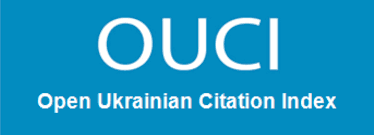Bìol. Tvarin. 2020; 22(1): 53–56.
https://doi.org/10.15407/animbiol22.01.053
Received 19.11.2019 ▪ Accepted 22.03.2020 ▪ Published online 01.05.2020
Mykola Hamaliya, an outstanding microbiologist and epidemiologist (to the 160th anniversary of the birthday)
Poltava State Agrarian Academy,
1/3 Skovorody str., Poltava, 36003, Ukraine
The brief biographical essay in honor of the 160th anniversary of the birth of Mykola Fedorovych Hamaliya, an outstanding Ukrainian microbiologist, epidemiologist, hygienist and health care organizer who organized the second bacteriological station in the world for vaccination against rabies. He was born on February 17, 1859 in Odesa in the family of a retired Guards Officer Fedir Mykhailovych Hamaliya. Mykola was the 12th child in the family, which belonged to an old cossak family. Grandfather Mykhailo Leontovych Hamaliya was a doctor who was the first in Tsarist Russia to publish the results of his research on anthrax. One of his ancestors, Hryhoriy Vysotsky, served with Bohdan Khmelnytsky, was his ambassador in Turkey, where he got the nickname “Hamalia”, which in Turkish meant “mighty”. Mykola Hamaliya graduated from the University in Odesa in 1880 and the Academy of Military Medicine in St. Petersburg in 1883. In 1883, Hamaliya returned to his native Odesa. He began to study the bacteriology of tuberculosis and anthrax in Odesa. In 1886 he worked in Paris with L. Pasteur. Studying vaccination against rabies, he improved on Pasteur’s method of prophylactic inoculations. In 1886 M. F. Hamaliya, I. I. Mechnikov and Y. Yu. Bardah organized a bacteriological station in Odesa for vaccination against rabies. Mykola Hamaliya identified the main measure of the fight against plague — the extermination of rats. He developed vaccination against typhus and tuberculosis. Mykola Hamaliya made a significant scientific contribution to the development of the doctrine of desinfection, he introduced the term “desinsection” into the language. Hamaliya initiated global vaccination for smallpox.
Key words: Mykola Fedorovych Hamaliya, history of microbiology, epidemiology and hygiene
- Absemetov MO. Nikolay Fedorovich Gamaleya — the patriarch of microbiology and epidemiology. Modern Problems of Science and Education. 2014; 5. Available at: http://www.science-education.ru/ru/article/view?id=14589 (in Russian)
- Averbukh L. Gamaleya Nikolay Fedorovich (1859–1949). In: They left a mark in the history of Odessa: Odessa biographical reference book. 2015. Available at: http://odessa-memory.info/index.php?id=116 (in Russian)
- Bragin K. Nikolay Gamaleya is a founder of nationality medical microbiology. Russian Planet. 2017. Available at: https://rusplt.ru/wins/nikolay-gamaleya-osnovatel-29251.html (in Russian)
- Kalita V. The dynasties of doctors and scientists of the Gamaleya are 420 years old. A chronicle of the life of three generations. Health.ua. 2015. Available at: https://health-ua.com/article/18049-dinastii-vrachej-i-uchenyh-gamaleev--420-lethronika-zhizni-treh-pokolenij (in Russian)
- Kostyukova N. N. Nikolay Fedorovich Gamaleya. National Research Centre of Epidemiology and Bacteriology named after Nikolay Fedorovich Gamaleya. 2009. Available at: http://www.gamaleya.org/index.php?catid=39&id=39:2009-12-02-08-38-34 (in Russian)
- National Research Center for Epidemiology and Microbiology named after N. F. Gamaleya. 2019. Available at: http://gamaleya.org/index.php/2009-12-03-13-53-28 (in Russian)
- Sarbei V. H. Hamaliia Mykola Fedorovych. In: Encyclopedia of the History of Ukraine: vol. 2. Ed. V. A. Smoliy NAS of Ukraine. Institute of Ukrainian History. Kyiv, Naukova Dumka publ. 2004: 688 p. Available at: http://www.history.org.ua/?termin=Gamalija_M (in Ukrainian)
- The Great Soviet Encyclopedia. 3rd ed. (1970–1979). Available at: https://encyclopedia2.thefreedictionary.com/Gamaleia%2c+Nikolai+Fedorovich
- The History of Saint Petersburg Pasteur Institute. 2019. Available at: http://www.pasteurorg.ru/rubric/280/Istoriya-Instituta (in Russian)














